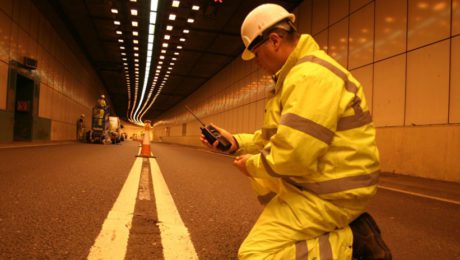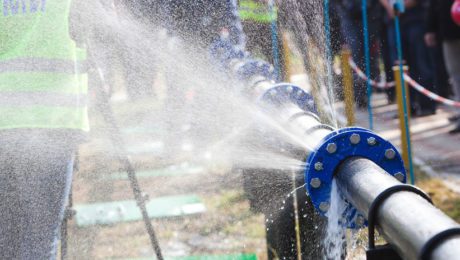Extend your radio coverage in hostile areas with Simoco’s Single Frequency Repeat feature
Implementing a critical communications network often has issues and challenges that need overcoming. Implementing one in an environment that is particularly hostile to radio coverage is further challenging as it can present coverage blackspots for radio communication. For instance, typical operations could involve groups of people communicating in particularly narrow gorges, shallow caves or relatively small buildings.
A Simoco 600 / 700 series DMR radio terminal (mobile or portable) with the Single Frequency Repeater (SFR) feature enabled will repeat on slot 2 traffic received on slot 1. The DMR radio terminal essentially serves as a single frequency DMO repeater.
- Published in Professional Mobile Radio
Steam > diesel > digital: the next railway revolution
A technological transformation is taking place across the UK’s rail network. As discussed in this article on the Network Rail website, a new ‘Digital Railway’ strategy has officially been launched, taking one of the UK’s most iconic forms of transport into a new era. Both trains themselves and the tracks they run on are increasingly being controlled by digital technology, from upgrades from old analogue signals, to digital control of the trains themselves on the likes of the new Crossrail line. As the chief executive of Network Rail has said, this is the biggest technological revolution on the railways since the transition from steam to diesel in the 1960s.
- Published in Transportation
Tackling critical communications in confined spaces
When implementing a unified critical communications network in any environment, there are always issues and challenges to be overcome. However, when implementing one in a confined space those challenges are augmented, and an entirely new set of difficulties is presented.
Developing a comprehensive communications network that can perform in adverse environments such as road or rail tunnels, or more industrial settings such as mines is not only important to delivering operational success either. Having reliable communications infrastructure in place is a must in order to ensure the safety of any members of staff or the public who may be using the space too. Operators need systems and technologies that can withstand challenging conditions and provide reliable and safe links for those in the confined environment.
- Published in Professional Mobile Radio
Going underground
One of the UK’s biggest engineering projects marked a major milestone in October, as it was revealed that an Elizabeth line train has been hauled through the Crossrail tunnel for the very first time.
Crossrail is set to increase the rail capacity in central London by 10%, and is expected to carry around 200 million passengers a year when fully open. Its main feature is 13 miles of new twin tunnels, right through central London.
- Published in Transportation
Nipping it in the bud: how telematics can extend the life of your assets
Proactivity is a positive in many aspects of business. From the sophisticated – spotting a gap in the market for the development of a new product or service – to the simple – cleaning up a spillage before somebody slips and falls. Spotting opportunities and threats and dealing with them in proactively often has a direct impact on the bottom line.
For organisations that use expensive mechanical or electrical assets, from vehicles to manufacturing equipment, one area in which it is particularly valuable to be proactive is optimised asset maintenance.
- Published in Telematics
Why facility managers need digital mobile radio
‘Single site’ covers a lot of bases. Single site organisations can be as small as an individual shop or office – or as huge and complex as hospitals, universities and even festival sites and holiday parks. Clearly, such sites have very different communications challenges from their smaller cousins.
Thousands or even tens of thousands of people work across these large single site organisations. Some, of course, are unique to particular sectors, such as the health practitioners in hospitals, but a huge proportion operate in all industries, from cleaners and maintenance staff to security personnel. These staff make up facilities management – and for them, communications are critical.
- Published in Professional Mobile Radio
Why water companies need to plug the communication gap to tackle the rising cost of leaks
The water industry is facing increasing pressure to modernise and revitalise much of its core infrastructure. In addition to pipelines, treatment plants and sewage systems, this also includes the need to upgrade the communication networks used in day-to-day operations, particularly those used to facilitate the transmission of reliable data.
At the same time, water companies are also facing the growing challenge posed by regulator fines for service disruption. This year is already proving to be particularly difficult, with a series of record fines being imposed due to illegal spills, overflows and leaks.
- Published in Utilities






